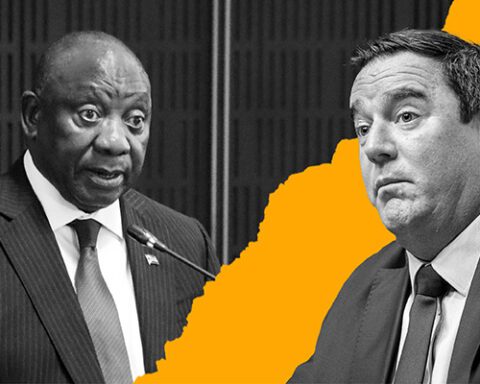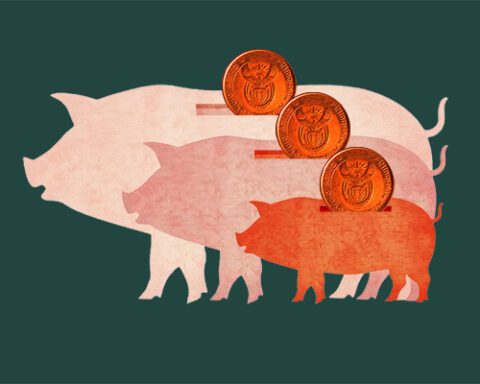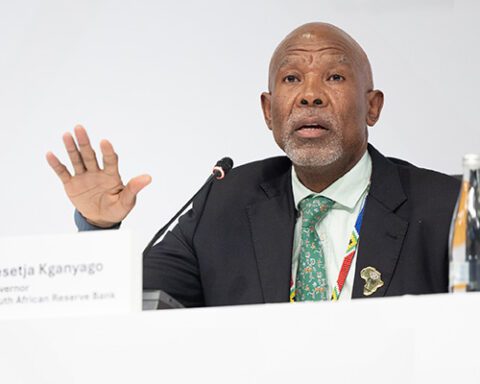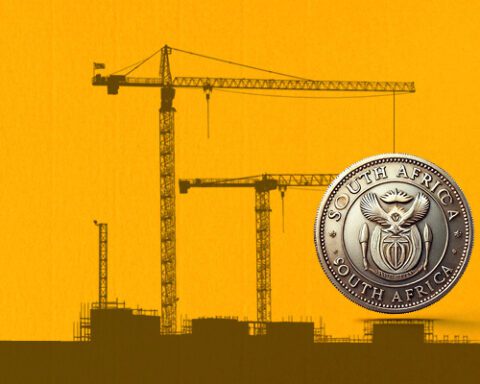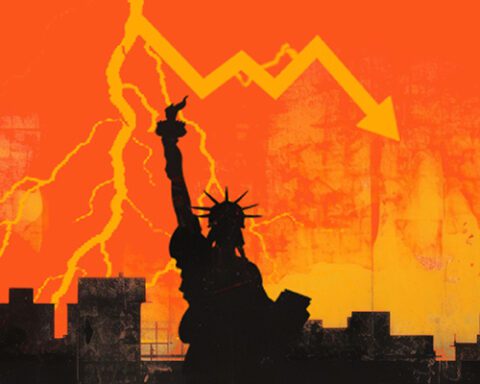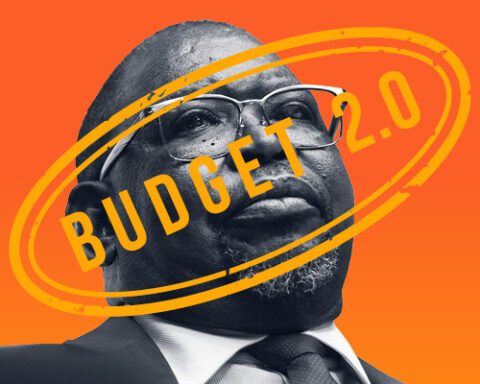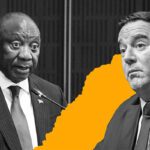The thing National Treasury has been kicking down the road, it now turns out, was not a can but a vat – that’s vat with a capital V, capital A, and capital T.
To plug the ever-widening hole in government finances, VAT was to be raised from 15% to 17% starting in April, finance minister Enoch Godongwana planned to announce on Wednesday.
Only, he didn’t. What would have been a bold move, and an unexpected and unpopular one, turned out to be one of the major egg-on-your-face moments in South Africa’s recent history.
No speech. The cabinet – the government of national unity (GNU) representatives – could not agree on the budget. And the reason to postpone the event by three weeks was a “collective cabinet decision”, according to minister in the presidency Khumbudzo Ntshavheni, who also hinted that senior ANC ministers were first to raise their misgivings with the proposed tax increase.
The last time VAT was hiked – by one percentage point in 2018 after being on pause at 14% for two decades – it sparked fury among trade unions and some opposition parties. So it is no surprise that this time there was similar posturing, with DA leader John Steenhuisen suggesting soon after the postponement that trimming the fat was preferable to increasing VAT.
Though always an option, raising the rate of a broad consumption tax is politically (if not economically) unpalatable. In a democracy, a VAT hike does not affect only a certain part of the electorate, it hurts all voters. Are you keeping cash-strapped South Africans happy while you bash the rich with a higher tax rate when you raise VAT? No. Everyone feels it in their pockets.
“A tax such as VAT carries political risk,” conceded Godongwana before the drama, when quizzed by the media earlier on Wednesday.
All political parties know this. Obviously no-one wants to alienate their support base and the ANC is no exception, he added.
But we live in the brave and bizarre new world of a GNU. In previous years you wouldn’t give a second thought to whether Treasury would have the political support to get the budget approved. Not in cabinet and neither in parliament. This time around, with the GNU a marriage not of love but of convenience, there were already some worries before the impasse. Would the DA, as junior partner in the government, put its votes behind it? Would all of the ANC’s MPs give it the nod? What about Cosatu and other trade unions? And in the event that they didn’t, what then?
So even if the cabinet gives it a greenlight in the next few weeks, it could very much stall in parliament if unhappy MPs don’t toe the party line. This is where it gets technical enough to just about be boring, but here is the gist: once tabled, the tax changes will take effect in April pending the passing of the bill – and the parties have a year to get it over the line. If you love high-stakes financial drama, don’t wait for the next Michael Lewis book or yet another season of Succession, just watch this space.
“There will be a great deal of negotiations to manage that political risk,” remarked Godongwana, adding that: “For all I know, the ANC could be marching outside” against the plan. Not outside, minister, inside!
A rock and a hard place
By international standards though, VAT was the one area – in terms of raising taxes – where the fiscus still had some room to manoeuvre. Dialling up personal income tax even further or reversing the latest company tax cut would have been swimming against the international tide. When it comes to VAT, several nations already milk consumers for more than 20% and the proposed hike would have brought the country in line with the rates among peers such as Mexico, Brazil and India.
But economic growth in South Africa has for years had neither the rhythm nor the spice of those countries. The feeble expansion of 1.1% that Treasury still expected for 2024 only six months ago, has since been revised down to 0.8% and the forecast for this year is 1.9%.
Other indicators, such as the budget deficit, have remained stubbornly high or have even been rising, as in the case of national debt and the cost of servicing these loans. The budget deficit is expected to be 5% this year and forecast to drop to 3.4% only by 2027/28. (Remember when former finance minister Pravin Gordhan said a shortfall of more than 3% was a temporary measure in a time of crisis? That was 16 years ago and the deficit has not dipped below 3% since.)
The result has been more and more borrowing; servicing the nation’s debt now consumes 22c of every rand of revenue. If the latest forecasts are to be believed, public debt will peak and stabilise at 76.1% of GDP next year.
With those numbers, growing yourself out of trouble just does not seem realistic. Treasury’s own Budget Review probably describes the situation best: “Over the past decade, deteriorating infrastructure, electricity disruptions, crime, corruption, weak investment and poor education outcomes have reduced the economy’s growth potential, or trend growth. South Africa’s potential growth is estimated to have remained below 2% since 2013, falling to an average of less than 1% over the past four years.”
So, Treasury has had to work cleverly with what little resources it had for at least the last half a decade, but probably for all those years since the 2008/09 global financial crisis (GFC). And the realisation that the pre-GFC growth would not soon (and maybe never) return, was a real shock.
The result has been an ever-widening gap between what Treasury aims for and what it can actually achieve. And don’t forget, politics is a force more powerful than any Excel spreadsheet. Balancing a budget has never been as big a priority as the see-saw of keeping important stakeholders happy.
The ambitious move by Godongwana’s predecessor Tito Mboweni, in 2020, to cut public sector pay by R160bn over the medium term was a pipe dream. That plan fizzled when politics intervened and salary increases were eventually granted while the late Mboweni wanted those wages to be frozen until the budget allowed.
Something similar happened, though this time not at the hands of politicians but from the judges’ benches, when Treasury’s intention to end the Covid relief grants was challenged successfully in court.
These were multibillion-rand setbacks. Money that Godongwana and company – in an economy that is hardly growing – had to find somewhere. Last year saw the crafty manoeuvring in realising profits on South Africa’s gold reserves, but that was a once-in-a-few-decades occurrence.
So this year, for not sticking to the budget pledges of the past, Treasury tried to take the almost unthinkable option of raising an unpopular tax. South Africa, unfortunately, will end up paying for the broken promises of previous years. Whether that will take the form of a higher VAT rate, or higher income tax, or sharp spending cuts, is anyone’s guess.
Sign up to Currency’s weekly newsletters to receive your own bulletin of weekday news and weekend treats. Register here.

